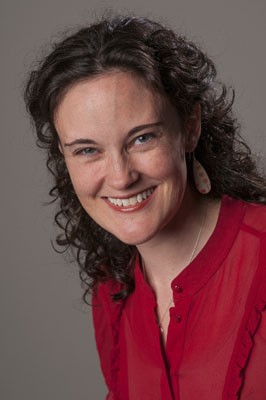By Tiffany Wilhelm on May 1st, 2017
The First 100 Days of Trump: Tiffany Wilhelm
An interview with Tiffany Wilhelm, Deputy Director of the Greater Pittsburgh Arts Council

This is an interview in a series featuring a broad range of reactions to President Trump’s first 100 days in Office, conducted by Lauren Ruffin, Vice President, External Relations at Fractured Atlas. In this interview we hear from Tiffany Wilhelm, Deputy Director of the Greater Pittsburgh Arts Council (GPAC)— an arts advocacy and service organization in Pennsylvania.
Disclaimer: The views expressed in this interview are solely Tiffany’s, and do not necessarily reflect those of GPAC or Fractured Atlas.
What was the immediate reaction of you/your members or stakeholders after the election?
Devastation. I was scheduled to co-facilitate an equity and justice training the day after the election. My fellow facilitators and I knew that it would be impossible for us to hold the space well, so we postponed for ourselves and for some of the participants who we knew were feeling similar levels of extreme fear and anger.
Did you make plans to change programming or messaging between the election and inauguration? How about after inauguration?
At that time, my organization was just beginning to plan our new annual convening/mini-conference that will take place on May 2nd. My brilliant colleague Christiane Leach spoke up immediately and said, “We CANNOT approach our programming business as usual.” We eventually themed the event “Future Tense,” and planned content that addresses a variety of topics including advocacy in the time of alternative facts, evolution of social justice movements, funding redistribution, building trust in unsettling times, survival techniques for artists, disability justice and intersectional feminism, and more.
What are your thoughts on Trump’s first 100 days in office? How has his Administration impacted the artistic sector?
In many ways, I think Trump’s election and his administration’s actions to roll back civil rights, environmental protections, healthcare, arts funding, and so more in his first 100 days have strengthened our resolve, commitment, and deep knowing that through the arts (through our humanity), there is power to transform, resist, and dissent. I continue to have radical hope that this extreme reversal of our political landscape is the direct effect of the unprecedented progress of our movements for social, environmental, and economic justice. The arts have a vital role in continuing to push those movements forward and to spread needed joy, beauty, empathy, and understanding.
Do you have any predictions for the rest of his term? What organizations are doing stellar work leading policy and advocacy in the field right now?
The only thing that I feel I can predict now is more unpredictability. I continue to be inspired by the language and actions of the U.S. Department of Arts and Culture and Theatre Communications Group. And by organizations like Alternate Roots and National Association of Latino Arts and Cultures that have always been grounded in fighting oppression.
